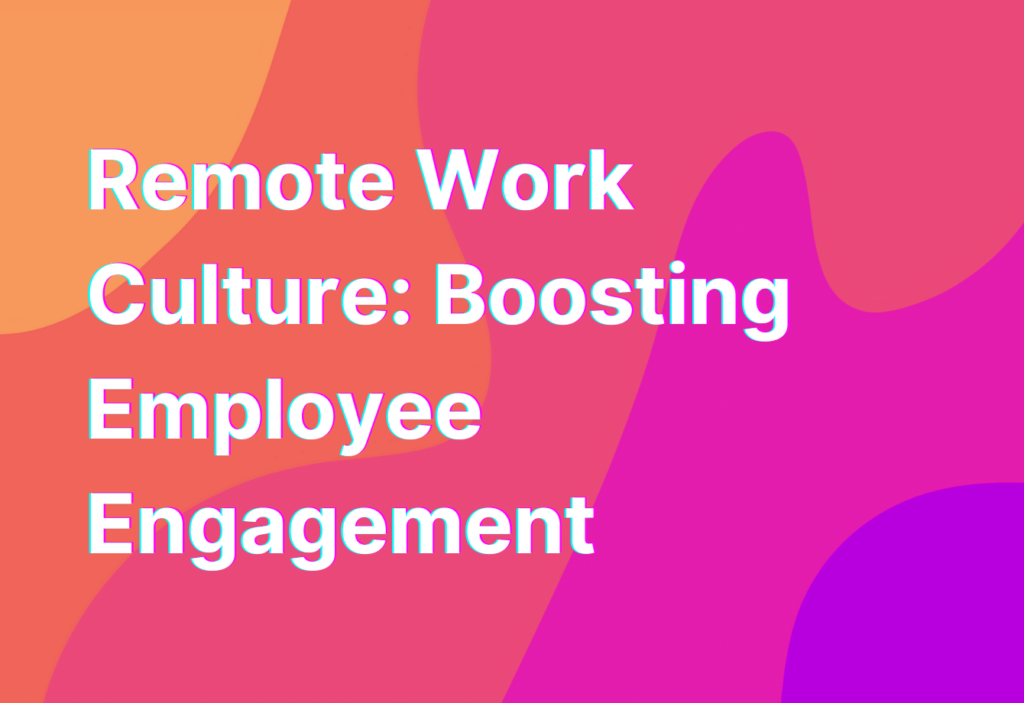Remote Work Culture: Boosting Employee Engagement
Remote work has become increasingly popular in recent years, with more and more companies embracing the benefits of a distributed workforce. However, managing remote teams comes with its own set of challenges, particularly when it comes to fostering a strong work culture and keeping employees engaged. In this article, we will explore some strategies and best practices for creating a positive remote work culture that boosts employee engagement.
The Importance of Remote Work Culture
Creating a strong remote work culture is essential for several reasons. First and foremost, it helps to build a sense of belonging and community among remote employees. When employees feel connected to their colleagues and the company as a whole, they are more likely to be engaged and motivated in their work.
Additionally, a positive remote work culture can help to combat feelings of isolation and loneliness that remote workers may experience. By fostering a supportive and inclusive environment, companies can help remote employees feel more connected and supported, leading to increased job satisfaction and productivity.
Strategies for Building a Positive Remote Work Culture
Now that we understand the importance of remote work culture, let’s explore some strategies for building a positive and engaging environment for remote employees:
- Regular Communication: Communication is key in any remote team. Encourage regular check-ins and team meetings to keep everyone connected and informed. Utilize video conferencing tools to facilitate face-to-face interactions and build stronger relationships.
- Set Clear Expectations: Clearly define roles, responsibilities, and expectations for remote employees. This helps to create a sense of structure and accountability, ensuring that everyone is on the same page.
- Promote Work-Life Balance: Remote work offers flexibility, but it’s important to encourage a healthy work-life balance. Encourage employees to take breaks, set boundaries, and prioritize self-care.
- Recognize and Reward: Remote employees deserve recognition for their hard work and achievements. Implement a system for acknowledging and rewarding outstanding performance, whether it’s through public recognition or incentives.
- Encourage Collaboration: Foster a collaborative environment by providing tools and platforms for remote teams to collaborate effectively. Encourage cross-functional collaboration and create opportunities for team members to work together on projects.
Boosting Employee Engagement through Self-Motivation
While building a positive remote work culture is important, it’s also crucial for remote employees to take ownership of their own engagement and motivation. Self-motivation plays a significant role in remote work success. To learn more about boosting remote work engagement through self-motivation, check out this article.
Final Thoughts
Creating a positive remote work culture is essential for boosting employee engagement and productivity. By implementing strategies such as regular communication, setting clear expectations, promoting work-life balance, recognizing and rewarding, and encouraging collaboration, companies can create a supportive and engaging environment for their remote teams. Remember, remote work culture is a continuous effort that requires ongoing attention and adaptation. By prioritizing employee engagement and well-being, companies can reap the benefits of a motivated and productive remote workforce.


